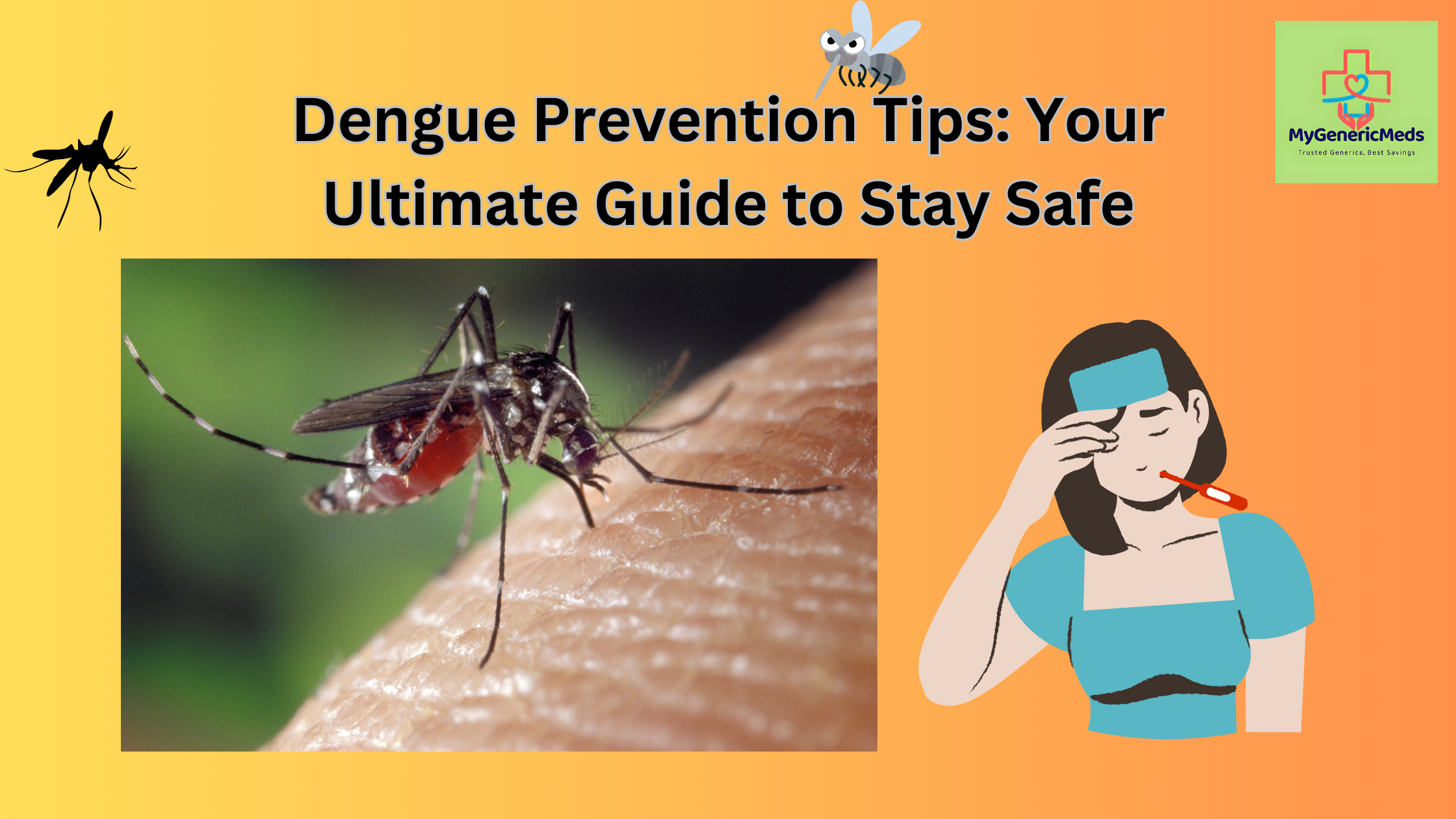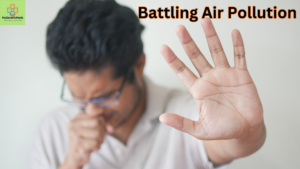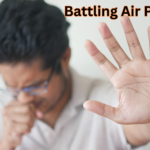Table of Contents
Toggle7 Proven Dengue Prevention Tips: Your Ultimate Guide to Stay Safe in India
The sweltering heat, monsoon showers, and festive cheer – India is a land of vibrant contrasts. However, lurking amidst this beauty is a formidable adversary: the dengue virus. Dengue fever, often referred to as “breakbone fever” due to the intense joint and muscle pain it causes, is a widespread concern across India. Every year, thousands of cases are reported, posing a significant health risk to individuals and communities.
The good news is that dengue is preventable. Armed with the right knowledge and proactive measures, you can significantly reduce your risk of contracting this debilitating disease. In this comprehensive guide, we’ll equip you with the most effective dengue prevention tips, explore treatment options, and even delve into home remedies that can offer relief. Whether you’re a concerned citizen, a parent worried about your children, or someone planning a trip to a dengue-prone area, this guide is your ultimate resource for staying safe and healthy.
Together, let’s combat the dengue danger and safeguard our well-being!
Understanding Dengue: Causes, Symptoms, and Transmission

Before we delve into prevention and treatment, let’s understand what dengue is and how it spreads. Dengue is a viral disease transmitted through the bite of an infected Aedes aegypti mosquito. This mosquito thrives in warm, humid climates and breeds in stagnant water, making India a prime breeding ground for them.
Symptoms of Dengue
Dengue fever can present a wide range of symptoms, varying from mild to severe. Recognizing these symptoms early is crucial for prompt diagnosis and treatment:
- High Fever: Dengue typically begins with a sudden high fever (104°F or 40°C) that can last for 2-7 days.
- Severe Headache: Intense headaches, often described as “behind the eyes,” are a common symptom.
- Joint and Muscle Pain: Severe joint and muscle pain, which gives dengue its nickname “breakbone fever,” is another hallmark symptom.
- Rash: A rash may appear 3-4 days after the onset of fever and can vary in appearance.
- Fatigue: Dengue can cause extreme fatigue and weakness.
- Nausea and Vomiting: Some individuals may experience nausea, vomiting, and loss of appetite.
In severe cases, dengue can progress to dengue hemorrhagic fever (DHF) or dengue shock syndrome (DSS), which can be life-threatening. Warning signs of severe dengue include severe abdominal pain, persistent vomiting, bleeding from the gums or nose, difficulty breathing, and restlessness. If you experience any of these symptoms, seek immediate medical attention.
Transmission of Dengue
Dengue is transmitted through the bite of an infected female Aedes aegypti mosquito. This mosquito is a daytime biter and typically breeds in stagnant water found in containers like flower pots, buckets, discarded tires, and water coolers. The mosquito becomes infected when it bites a person with dengue and can then transmit the virus to others through subsequent bites.
Understanding the mosquito’s lifecycle is key to preventing its spread. The female mosquito lays eggs in stagnant water, which hatch into larvae. The larvae then develop into pupae and eventually emerge as adult mosquitoes. By targeting the breeding sites of these mosquitoes and taking personal protective measures, we can significantly reduce the risk of dengue transmission.
Sources:
drtathed.com/how-homeopathy-can-fight-dengue-in-any-rainy-season
7 Proven Dengue Prevention Tips: Your Shield Against the Bite
Preventing dengue is far more effective than treating it. By taking proactive measures to reduce mosquito breeding and protect yourself from bites, you can significantly lower your risk of contracting this disease. Here are seven proven strategies that you can implement in your daily life:
Eliminate Mosquito Breeding Grounds
Aedes aegypti mosquitoes breed in stagnant water, so the first line of defense is to eliminate any potential breeding sites around your home and neighborhood. This includes:
- Empty and clean containers: Regularly empty and scrub containers that collect water, such as flower pots, coolers, buckets, discarded tires, and even bottle caps.
- Cover water storage tanks: Ensure that water storage tanks, both overhead and underground, are tightly covered to prevent mosquitoes from accessing them.
- Change water frequently: Change the water in birdbaths, pet bowls, and flower vases at least twice a week to disrupt the mosquito breeding cycle.
- Maintain proper drainage: Keep drains clear of debris and ensure that water flows freely to prevent it from stagnating.
- Fill tree holes and depressions: Fill any tree holes or depressions in your yard with sand or soil to eliminate potential breeding sites.
- Use larvicides: In areas with heavy mosquito infestations, larvicides can be used to kill mosquito larvae in stagnant water. Consult with local authorities for safe and effective larvicide options.
Remember, even a small amount of stagnant water can serve as a breeding ground for mosquitoes. Be vigilant and take regular steps to eliminate these sites around your home and community.
Personal Protection Measures
While eliminating breeding sites is crucial, it’s equally important to protect yourself from mosquito bites. Here are some effective personal protection measures:
- Use Mosquito Repellents or Creams: Apply mosquito repellents containing DEET, picaridin, or oil of lemon eucalyptus to exposed skin. Follow the instructions on the product label for safe and effective use. Natural repellents like citronella oil and neem oil can also be helpful. Application of the Mosquito repellant cream, Mos-Q-Safe can help too, reducing the risk of Dengue or Malaria.
- Wear Protective Clothing: When spending time outdoors, especially during dawn and dusk when mosquitoes are most active, wear long-sleeved shirts, long pants, and socks to minimize exposed skin. Light-colored clothing is preferable, as mosquitoes are attracted to dark colors.
- Sleep Under Mosquito Nets: Use mosquito nets while sleeping, even during the day. Ensure that the net is properly tucked in and free of holes. Insecticide-treated nets offer even greater protection.
- Install Window and Door Screens: Fit your windows and doors with screens to prevent mosquitoes from entering your home. Repair any holes or tears in existing screens.
- Use Mosquito Coils and Vaporizers: Mosquito coils and vaporizers can be effective in repelling mosquitoes indoors. Follow the instructions for safe use and ensure adequate ventilation.
- Boost your immunity: One of the best methods to protect oneself from any illness is to increase one’s immunity. This will help you to fight the diseases effectively. You can order one of our best selling Multivitamin supplement at an affordable price.
Additional Tips:
- Avoid Fragrances: Mosquitoes are attracted to certain scents, including perfumes, colognes, and scented lotions. Opt for fragrance-free products, especially when spending time outdoors.
- Stay Indoors During Peak Hours: Mosquitoes are most active during dawn and dusk. Limit outdoor activities during these times or take extra precautions.
- Keep Your Surroundings Clean: Clear out any clutter or debris in your yard that can provide hiding places for mosquitoes.
By implementing these personal protection measures, you create a barrier between yourself and the dengue-carrying mosquitoes, significantly reducing your risk of infection.
Let me know when you’re ready for the next section!
Sources:
Environmental Management
While individual efforts are crucial, combating dengue requires a collective approach at the community level. Environmental management plays a vital role in reducing mosquito populations and minimizing the risk of outbreaks. Here’s how you can contribute:
- Community Clean-up Drives: Participate in regular clean-up drives to eliminate potential breeding sites in your neighborhood. Clear out stagnant water from drains, ditches, and discarded containers. Educate your neighbors about the importance of keeping their surroundings clean and free of mosquito breeding grounds.

- Proper Waste Disposal: Ensure that garbage is properly disposed of in covered bins. Discarded items like tires, plastic containers, and broken pots can easily accumulate water and become breeding grounds for mosquitoes.
- Maintain Drainage Systems: Clogged drains and gutters can impede water flow, leading to stagnation and mosquito breeding. Keep your drains clear and report any blockages to local authorities.
- Support Vector Control Programs: Many municipalities in India have vector control programs in place to manage mosquito populations. These programs may involve spraying insecticides, using larvicides, and conducting fogging operations. Cooperate with these efforts and follow any guidelines provided by local authorities.
- Plant Mosquito-Repelling Plants: Certain plants like citronella, marigold, lavender, and basil have natural mosquito-repelling properties. Planting these around your home can help deter mosquitoes and create a more pleasant environment.
By actively participating in environmental management efforts, you not only protect yourself and your family but also contribute to a healthier and safer community. Remember, a collective approach is essential to effectively combat the dengue danger.
Vaccination
In recent years, there has been a significant development in the fight against dengue: the introduction of the dengue vaccine. In India, the vaccine Dengvaxia (CYD-TDV) has been approved for use in individuals aged 9-45 years who have had a laboratory-confirmed previous dengue infection.
The vaccine is given in three doses, six months apart. While it doesn’t guarantee complete protection against dengue, it has been shown to significantly reduce the risk of hospitalization and severe dengue.
Important Considerations:
- Previous Dengue Infection: The vaccine is most effective for those who have previously been infected with dengue.
- Age Restrictions: The vaccine is not recommended for children under 9 years or adults over 45 years.
- Consult Your Doctor: It’s crucial to consult your doctor to determine if you’re eligible for the vaccine and discuss its potential benefits and risks.
Early Detection and Diagnosis
Early detection and diagnosis of dengue are crucial for prompt treatment and better outcomes. If you experience any of the symptoms mentioned earlier, especially if you live in or have recently traveled to a dengue-prone area, it’s essential to seek medical attention immediately.
Your doctor will likely conduct a physical examination and may order blood tests to confirm the diagnosis. The most common tests for dengue are the NS1 antigen test and the PCR test. The NS1 antigen test detects a specific protein produced by the dengue virus, while the PCR test detects the virus’s genetic material.
Early diagnosis allows for timely treatment and supportive care, which can significantly reduce the risk of complications and improve your chances of a speedy recovery.
Travel Precautions
If you’re planning a trip to a region where dengue is prevalent, taking extra precautions is essential to protect yourself from mosquito bites and reduce the risk of infection. Here are some tips to keep in mind:
- Research Your Destination: Before you travel, research the dengue risk in your destination. The Indian government’s National Vector Borne Disease Control Programme (NVBDCP) provides information on dengue outbreaks and affected areas. You can also check travel advisories from reliable sources like the World Health Organization (WHO) and the Centers for Disease Control and Prevention (CDC).
- Pack Mosquito Repellents: Carry an ample supply of mosquito repellents containing DEET, picaridin, or oil of lemon eucalyptus. Apply them regularly to exposed skin, following the instructions on the product label.
- Wear Protective Clothing: Pack long-sleeved shirts, long pants, and socks to minimize exposed skin. Choose light-colored clothing, as mosquitoes are attracted to dark colors.
- Choose Accommodations Wisely: Opt for accommodations with air conditioning or window screens to prevent mosquitoes from entering your room. If air conditioning is not available, use a mosquito net while sleeping.
- Stay Informed: Stay updated on the local dengue situation and any preventive measures recommended by health authorities. If you experience any symptoms of dengue during your trip, seek medical attention promptly.
- Consider Travel Insurance: Consider purchasing travel insurance that covers medical expenses related to dengue fever. This can provide financial protection in case you need medical treatment during your trip.
By following these travel precautions, you can enjoy your trip while minimizing your risk of contracting dengue. Remember, prevention is always better than cure!
Public Awareness and Education
Raising public awareness and promoting education about dengue are crucial components of prevention. An informed community is better equipped to take preventive measures, recognize symptoms early, and seek timely medical care. Here’s how you can contribute:
- Participate in Awareness Campaigns: Engage in community awareness campaigns organized by local health authorities or NGOs. These campaigns may include workshops, seminars, rallies, and distribution of educational materials. Share information about dengue prevention tips with your friends, family, and neighbors.
- Spread the Word on Social Media: Use social media platforms to share reliable information about dengue, prevention tips, and treatment options. Encourage others to take preventive measures and dispel myths about the disease.
- Organize Community Workshops: If you have the resources, consider organizing workshops or seminars on dengue prevention in your community. Invite experts to speak on the topic and provide practical tips for mosquito control and personal protection.
- Encourage School Education: Advocate for the inclusion of dengue education in school curricula. Teach children about the mosquito lifecycle, dengue symptoms, and prevention measures. This can empower them to take action and share the knowledge with their families.
- Support Media Initiatives: Encourage local media outlets to feature stories and programs about dengue prevention. This can help reach a wider audience and raise awareness on a larger scale.
By actively participating in public awareness and education efforts, you contribute to creating a more informed and proactive community, better prepared to tackle the dengue danger. Remember, knowledge is power, and by sharing information, we can empower others to protect themselves and their loved ones from this debilitating disease.
Dengue Treatment Options: From Home Care to Hospitalization
While prevention is the best strategy, it’s crucial to know how to manage dengue if you or someone you know contracts it. The treatment approach varies depending on the severity of the illness.
Home Care for Mild Dengue
In most cases, dengue fever is mild and can be managed at home with proper care. Here’s what you can do:
- Rest: Get plenty of rest to allow your body to fight off the virus. Avoid strenuous activities and take it easy.
- Hydration: Drink plenty of fluids like water, oral rehydration solutions (ORS), coconut water, and herbal teas to prevent dehydration, which can be a common complication of dengue.
- Pain and Fever Management: For pain and fever, consult a doctor who can recommend appropriate medication. Avoid medications like aspirin and ibuprofen, as they can increase the risk of bleeding in dengue patients.
Home Remedies for Symptom Relief
In addition to conventional care, several home remedies are often used in India to alleviate dengue symptoms:
- Papaya Leaf Juice: Papaya leaf juice is believed to help increase platelet count, which can drop in dengue patients.

- Fenugreek Seeds: Fenugreek seeds are thought to have fever-reducing properties.
- Coriander Leaves: Coriander leaves are often used to make a soothing drink that can help with fever and dehydration.
- Giloy: Giloy (Tinospora cordifolia) is a herb known for its immune-boosting properties and is often recommended for dengue recovery.
While these home remedies may offer some relief, it’s important to consult your doctor before using them, especially if you are pregnant, breastfeeding, or have any underlying medical conditions.
When to Seek Medical Attention
If your symptoms worsen or you experience any of the following warning signs, seek immediate medical attention:
- Severe abdominal pain
- Persistent vomiting
- Bleeding from the gums or nose
- Difficulty breathing
- Restlessness or lethargy
Hospitalization for Severe Dengue
In some cases, dengue fever can progress to a severe form known as dengue hemorrhagic fever (DHF) or dengue shock syndrome (DSS). These conditions require immediate hospitalization and intensive medical care.
Signs and symptoms of severe dengue include:
- Severe abdominal pain
- Persistent vomiting
- Bleeding from the gums or nose
- Blood in vomit or stool
- Difficulty breathing
- Rapid breathing
- Fatigue or restlessness
- Cold, clammy skin
- Weak pulse
- Decreased urine output
If you or someone you know experiences any of these symptoms, it’s crucial to seek immediate medical attention. Severe dengue can be life-threatening if not treated promptly.
Hospital Treatment for Severe Dengue
In the hospital, treatment for severe dengue focuses on managing complications and supporting the body’s recovery. This may include:
- Intravenous Fluids: To prevent dehydration and maintain blood pressure.
- Blood Transfusions: If bleeding occurs, blood transfusions may be necessary to replace lost blood and platelets.
- Oxygen Therapy: If breathing difficulties arise, oxygen therapy can help maintain adequate oxygen levels.
- Close Monitoring: Patients with severe dengue require close monitoring of vital signs, fluid intake and output, and blood parameters to detect any complications early on.
Early Intervention is Key
With prompt diagnosis and appropriate medical care, most people with severe dengue recover fully. However, delays in treatment can lead to serious complications and even death. Therefore, it’s crucial to seek immediate medical attention if you suspect severe dengue.
Sources:
Special Considerations for Children and Pregnant Women
Dengue fever can affect anyone, but children and pregnant women require special attention due to their vulnerability.
Dengue in Children
Children, especially those under the age of 10, are more susceptible to severe dengue. Their immune systems are still developing, making them more vulnerable to complications. Recognizing dengue symptoms in children is crucial for early diagnosis and treatment.
Symptoms of Dengue in Children
While the symptoms of dengue in children are similar to those in adults, they may be less obvious or more difficult to interpret. Here are some common signs to watch out for:
- High fever
- Irritability or restlessness
- Loss of appetite
- Vomiting
- Abdominal pain
- Rash
- Bleeding from the nose or gums
- Difficulty breathing
If your child exhibits any of these symptoms, especially during or after the monsoon season, seek medical attention immediately. Early diagnosis and treatment can significantly improve outcomes for children with dengue.
Prevention Tips for Children
Protecting children from mosquito bites is crucial. Here are some additional tips to keep in mind:
- Dress children in long-sleeved shirts, long pants, and socks when they are outdoors.
- Use mosquito repellents that are safe for children, following the age-specific instructions on the product label.
- Ensure that children sleep under mosquito nets, even during daytime naps.
- Educate children about dengue prevention and the importance of avoiding mosquito bites.
By taking these precautions, you can safeguard your child’s health and protect them from the dangers of dengue fever.
Dengue in Pregnant Women
Pregnant women are also at a higher risk of developing severe dengue. The hormonal changes during pregnancy can affect the immune system, making them more vulnerable to complications. Additionally, dengue infection during pregnancy can pose risks to both the mother and the developing fetus.
Prevention Tips for Pregnant Women
Pregnant women should take extra precautions to prevent mosquito bites. This includes:
- Using mosquito repellents that are safe for use during pregnancy.
- Wearing protective clothing when outdoors.
- Sleeping under mosquito nets.
- Avoiding areas with high mosquito activity.
If a pregnant woman experiences any symptoms of dengue, she should consult her doctor immediately. Early diagnosis and treatment are essential for ensuring the well-being of both the mother and the baby.
By taking these precautions and seeking prompt medical care when necessary, children and pregnant women can be protected from the potential dangers of dengue fever. Check our Blog on Role of vitamins for healthy pregnancy.
Conclusion: Your Journey to Dengue-Free Living in India
As we’ve explored in this comprehensive guide, dengue fever is a serious health concern in India, but it’s not an insurmountable one. By understanding the disease, taking proactive preventive measures, and being prepared for treatment, you can significantly reduce your risk and protect your loved ones.
Remember:
- Prevention is Key: The most effective way to combat dengue is to prevent mosquito bites and eliminate breeding sites.
- Community Effort: Dengue prevention requires a collective effort from individuals, communities, and government agencies.
- Early Detection: Recognizing dengue symptoms early and seeking prompt medical care can make a significant difference in outcomes.
- Home Remedies: While home remedies can offer relief, they should not be a substitute for professional medical advice.
Your Role in Dengue Prevention
Each one of us has a role to play in preventing dengue. By taking simple steps like emptying stagnant water containers, using mosquito repellents, and supporting community clean-up drives, we can create a safer and healthier environment for ourselves and our communities.
Empowering Yourself with Knowledge
Empower yourself with knowledge about dengue prevention, transmission, and treatment. Share this information with your family, friends, and neighbors. By raising awareness and working together, we can make a real difference in combating this widespread disease.
Let’s pledge to take proactive measures to protect ourselves and our communities from the dengue danger. Together, we can create a dengue-free India!
Please share your experience with Dengue, if you experienced it with yourself or your loved ones, in the comments section below. Also share any other tips and ways it can be managed.
A Final Note:
This blog post is intended for informational purposes only and should not be considered a substitute for professional medical advice. If you have any concerns about dengue or experience any symptoms, please consult your doctor immediately.
Sources:







[…] 7 Proven Dengue Prevention Tips: Your Ultimate Guide to Stay Safe […]